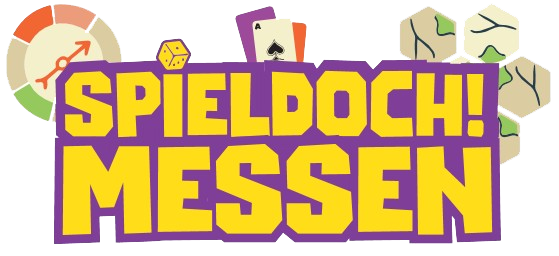28.03.2025 - 18 Traditionen haben die Kulturministerkonferenz der Länder und die Beauftragte der Bundesregierung für Kultur und Medien diese Woche in das UNESCO-Verzeichnis des immateriellen Kulturerbes in Deutschland aufgenommen, darunter auch das Spielen von Brettspielen: Neben anderen Neuzugängen wie dem Töpfern, dem Gold- / Silberschmiede-Handwerk, dem Kunsthandwerk aus dem Erzgebirge und von Randgruppen gesprochenen "Rotwelsch"-Dialekten gehören damit jetzt auch Gesellschaftsspiele offiziell zum hiesigen Kulturerbe und erweitern das Verzeichnis auf 168 Einträge.
Auf der UNESCO-Website wird Spielen von Brettspielen beschrieben als "lebendige Tradition, die in verschiedenen sozialen Kontexten wie Vereinen, Clubs, Cafés und Jugendzentren, aber auch in privaten Haushalten gepflegt wird. Sie wird durch den Austausch von Wissen und Erfahrungen zwischen Generationen und sozialen Gruppen getragen. [...] Durch das gemeinsame Spielen entsteht eine integrative und generationenübergreifende Praxis, die Menschen miteinander verbindet, unabhängig von sozialen oder kulturellen Unterschieden."

Die Kulturministerkonferenz hatte Vorschläge eingebracht, die wiederum durch ein unabhängiges Fachkomitee für das Immaterielle Kulturerbe der Deutschen UNESCO-Kommission (United Nations Educational, Scientific and Cultural Organization) geprüft wurden. Mit dem Verzeichnis sollen kreative, inklusive und innovative Kulturformen als Bestandteil der kulturellen Identität gewürdigt werden. Die Kulturstaatsministerin Claudia Roth dazu: „Die Neuaufnahmen in das Verzeichnis des Immateriellen Kulturerbes spiegeln die kulturelle Vielfalt und regionale Besonderheiten wider. Es freut mich, dass die ‚Brettspielkultur‘ in die Liste aufgenommen wurde; sie verbindet Generationen und fördert den Zusammenhalt. Auch die Aufnahme der Analogen Fotografie wie etwa auch von Glockenguss und Glockenmusik ist eine wichtige Würdigung dieser Kulturtechniken.“
Das Übereinkommen zur Erhaltung des Immateriellen Kulturerbes wurde 2003 von der Generalkonferenz der UNESCO in Paris verabschiedet, bis heute unterzeichneten 184 Staaten; Deutschland schloss sich 2013 an. Um die Aufnahme des Themas „Brettspiele spielen – Deutsche Brettspielkultur“ hatten sich der "Stadt Land Spielt!"-Organisator Spielzeit weltweit e.V. und der Ali Baba Spieleclub beworben.
_____
18 traditions were added to the UNESCO list of intangible cultural heritage in Germany this week by the Conference of Ministers of Culture of the Federal States and the Federal Government Commissioner for Culture and the Media, including playing board games: Alongside other new additions such as pottery, gold / silversmith crafts, arts and crafts from the Ore Mountains and “Rotwelsch” dialects spoken by marginalized groups, board games are now officially part of the local cultural heritage, expanding the list to 168 entries.
On the UNESCO website, playing board games is described as a “living tradition cultivated in various social contexts such as associations, clubs, cafés and youth centers, but also in private households. It is supported by the exchange of knowledge and experience between generations and social groups. [...] Playing together creates an integrative and intergenerational practice that connects people, regardless of social or cultural differences.”
The Conference of Culture Ministers had submitted proposals, which were in turn reviewed by an independent expert committee for intangible cultural heritage of the German UNESCO Commission (United Nations Educational, Scientific and Cultural Organization). The aim of the list is to recognize creative, inclusive and innovative forms of culture as an integral part of cultural identity. German Minister of State for Culture Claudia Roth commented: “The new entries in the intangible cultural heritage list reflect cultural diversity and regional characteristics. I am delighted that 'board game culture' has been included; it connects generations and promotes cohesion. The inclusion of analog photography as well as bell casting and bell music is also an important recognition of these cultural techniques.”
The Convention for the Safeguarding of the Intangible Cultural Heritage was adopted by the UNESCO General Conference in Paris in 2003 and has been signed by 184 countries to date; Germany joined in 2013. The “Stadt Land Spielt!” organizer Spielzeit weltweit e.V. and the Ali Baba Spieleclub had campaigned for the inclusion of the topic “Playing board games - German board game culture”.





